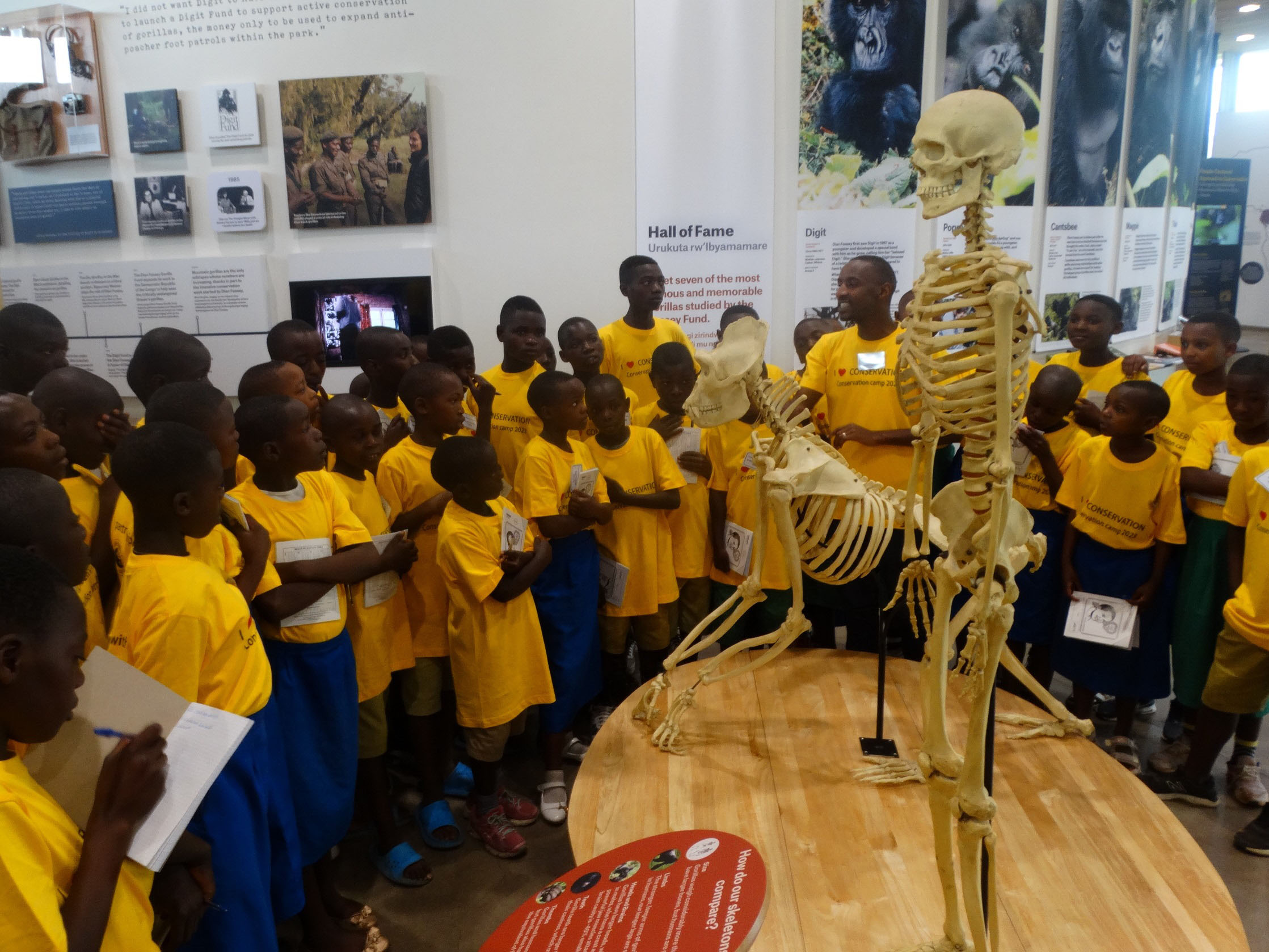“As the main programme under the Educate pillar of our impact strategy, we are proud to see the growing success of Children in the Wilderness in Rwanda, and to work with our like-minded partners to host these informative and fun Conservation Camps. Our collective efforts increase the impact we can make, and together we can achieve so much more”, noted Aline Umutoni, Wilderness Rwanda Community and CITW Co-ordinator.
The fun workshops and activities were held at the Dian Fossey Gorilla Fund’s Ellen DeGeneres Campus. On the fourth and final day of each of the camps, an outing to Wilderness Bisate focused on its reforestation programme and the importance of the children looking after their environment.

During their workshops, the students learned about gorilla behaviour and ecology, the national parks of Rwanda, threats to biodiversity in Volcanoes National Park and the necessary actions to help protect it, plus the importance of birds in ecosystems. There was also time for arts and crafts, many different games and songs, and of course snacks and meals, which were very popular.
The Wilderness Bisate field trip included a visit to the indigenous tree nursery, followed by hiking one of the nature trails on the property. In the nursery the children were welcomed by the Bisate agronomists who explained the process from seed to sapling to tree, the importance of biodiversity in trees and how to look after a sapling. Whilst hiking on the nature trails the different trees were identified and more questions followed. The visit to Bisate ended with each child choosing their own sapling to plant at their home.
From Bisate, a conservation parade back to the Ellen DeGeneres Campus of the Dian Fossey Gorilla Fund followed. With a police escort, the group of children marched through the community singing songs which carried their conservation message.

The closing ceremony of the Conservation Camps took place in the presence of sector leaders, RDB representatives, the Headmasters of the six schools, and journalists from the local newspaper and television station.
After the camp, one of the participants from Kamwumba Primary School, Richard Shema said, “I explained to my mum how everything is connected and how we need each other to survive. When you cut the grasses the herbivores cannot survive, and if the small animals die the carnivores cannot survive. If they cannot survive, even the people cannot, so we all need to work together and protect everything, from small to big animals and plants”.
The very first – and equally successful – Conservation Camp in Rwanda took place in 2019. Since that time, five Conservation Camps have taken place (apart from 2020 and 2021, when the programmes were postponed due to COVID regulations), giving 200 children the wonderful opportunity to learn more about conservation in this fun and informative way.



